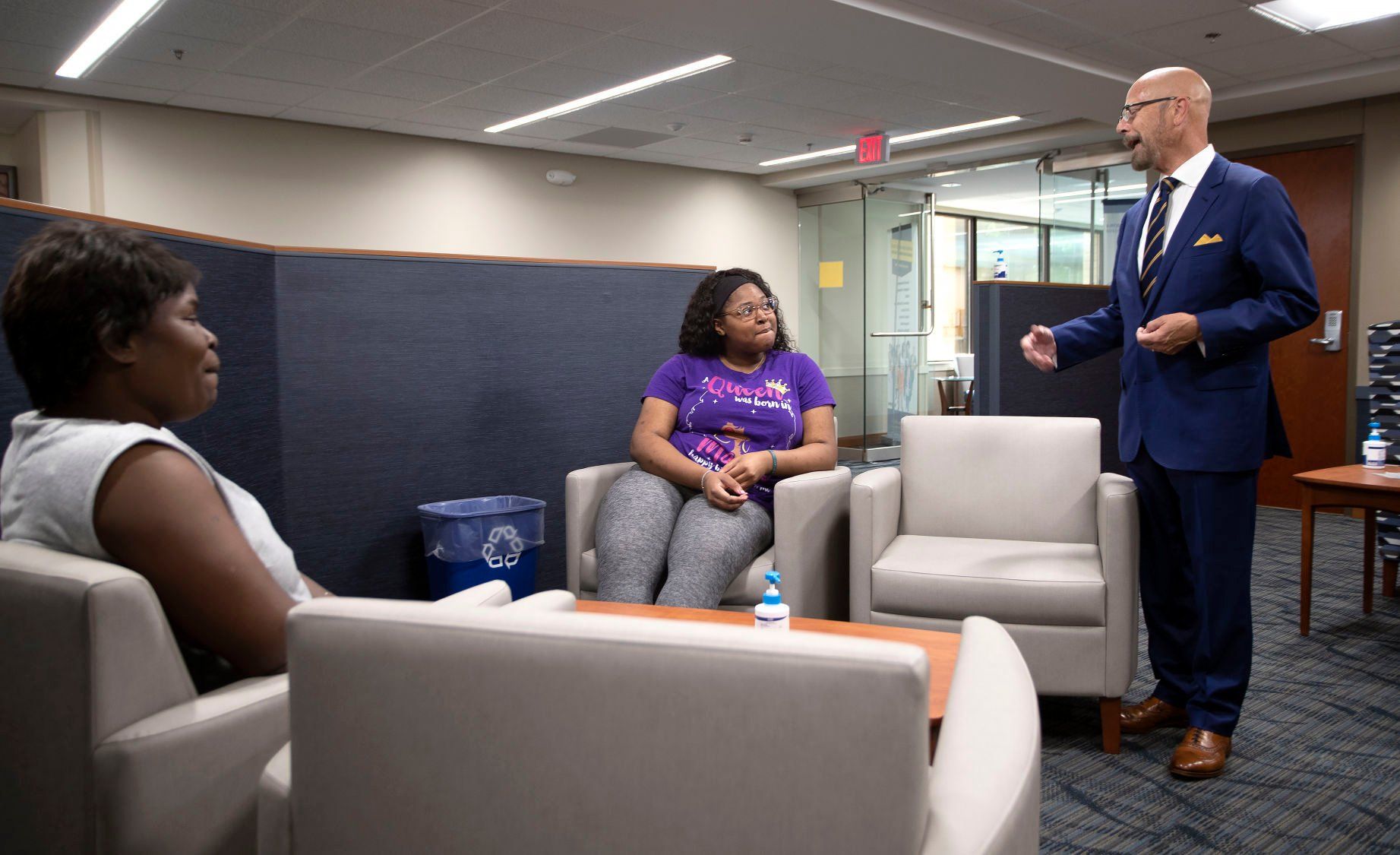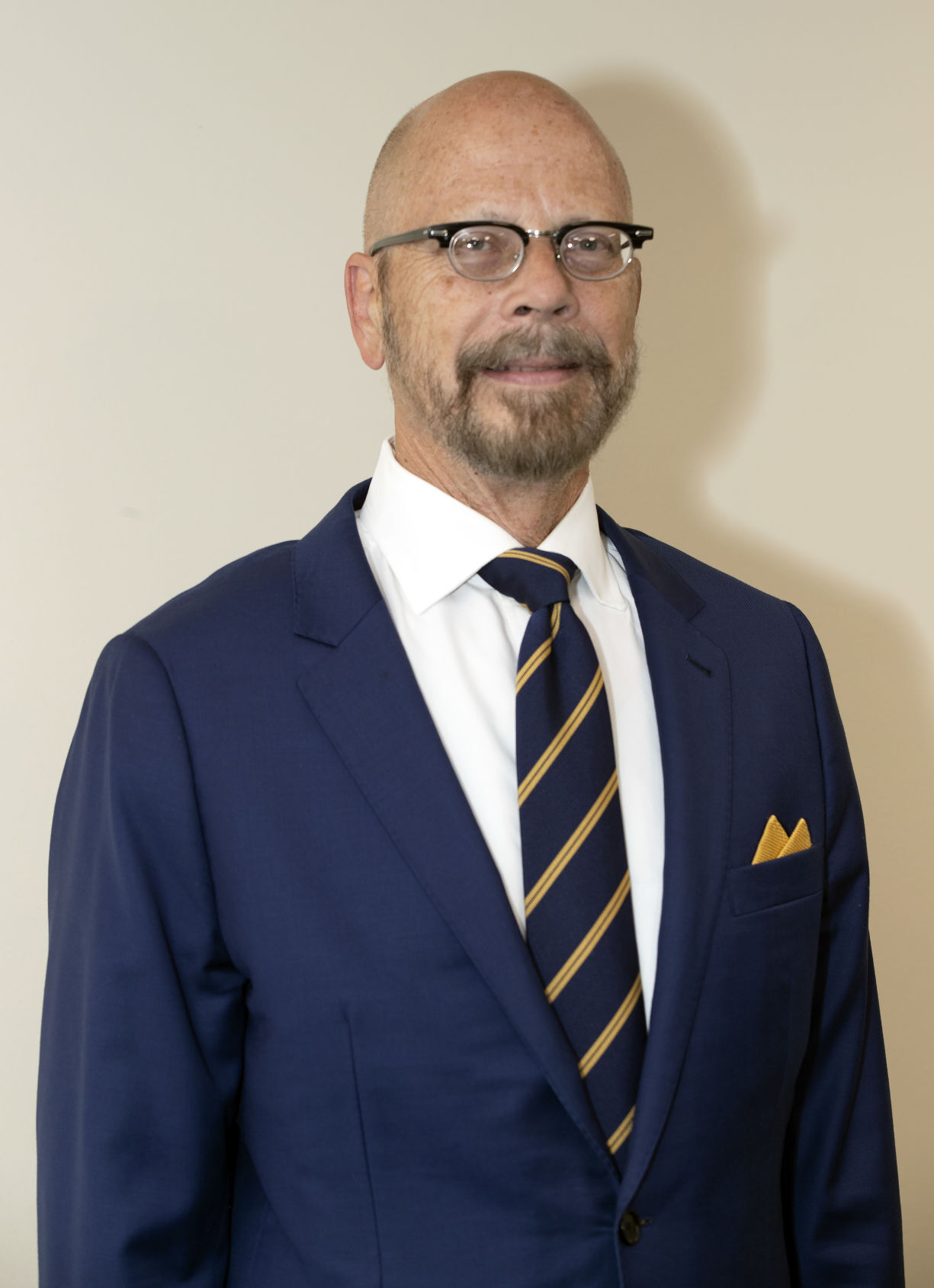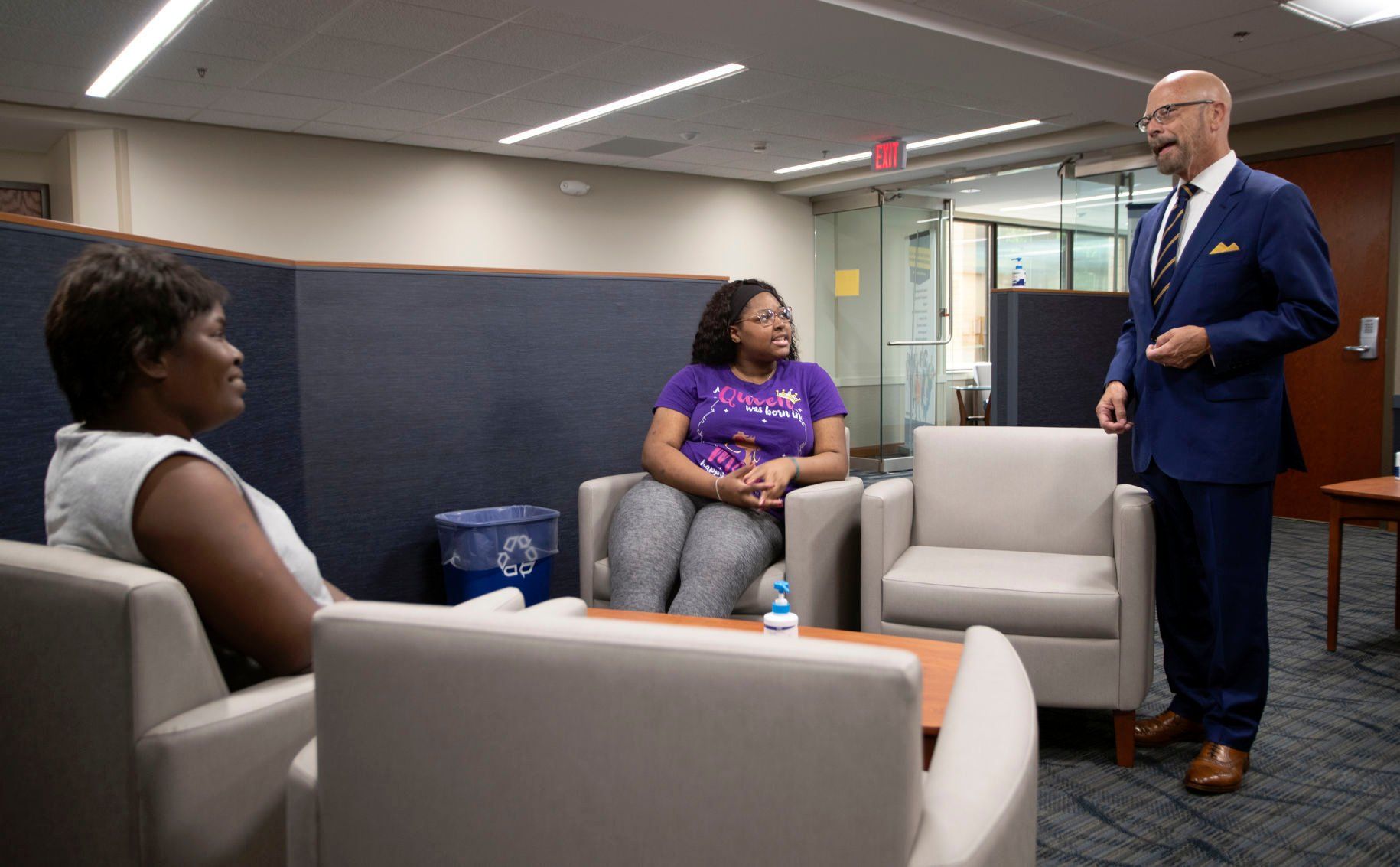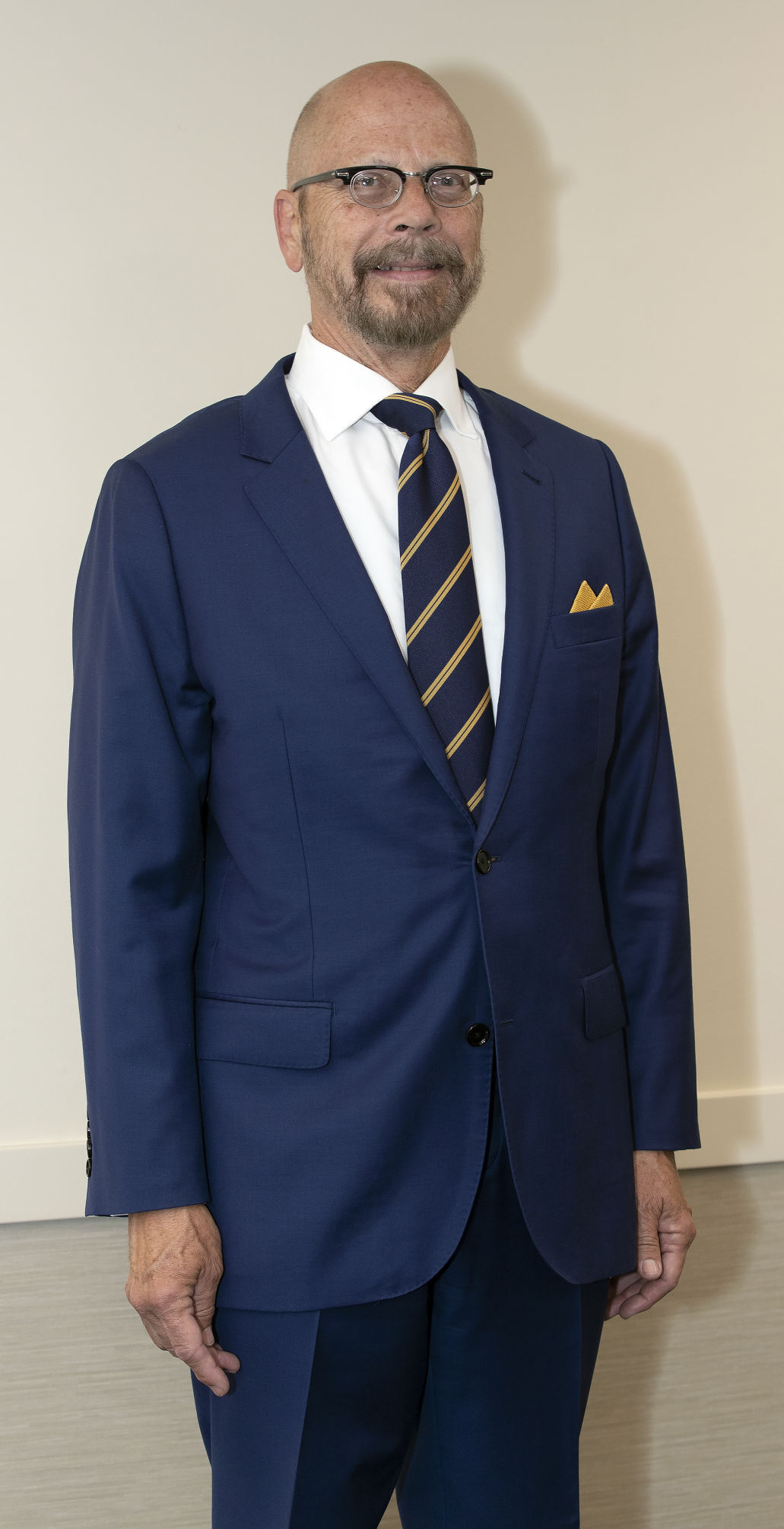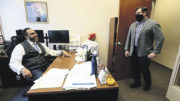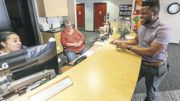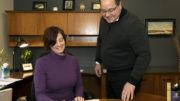Herbert H.J. Riedel, Northeast Iowa Community College President
Herbert H.J. Riedel has served in several capacities in higher education, including as faculty member teaching undergraduate and graduate courses in mathematics, research center deputy director, vice president and president. He has been connected with large research universities, a four-year liberal arts military college, technical and community colleges, in Alabama, Florida, South Carolina and Texas.
He now serves as president of Northeast Iowa Community College.
He is internationally educated, having attended six schools on four continents. He earned master’s and doctorate degrees in the field of pure mathematics from the University of Waterloo, Canada. Riedel is knowledgeable in six languages — fluent in German and conversational in Spanish. The son of German immigrants, he is a native Canadian and naturalized U.S. citizen.
For more than 10 years, Riedel served as president of Lurleen B. Wallace Community College in Alabama. His tenure was characterized by many innovations, including new program offerings in advanced manufacturing, health care and short-term skills training, the institution of an honors program, the college’s first student housing complex, redesign of the developmental mathematics program and several student success initiatives.
In January 2014, his college was named a national Bellwether Award finalist for its innovative public-private partnership to establish student housing. In 2018, his college was recognized by the American Association of Community Colleges with the Award of Excellence in Student Success for dramatic increases in graduation rates and other measures, including the highest fall-to-fall retention rates in the state.
Riedel and his wife, Lisa, have two sons, both of whom graduated from the college where he was president. A lover of classical music, Riedel founded the Andalusia Chamber Music Society, which brings high quality live classical music to the community.
In his spare time, he repairs farm equipment, including an old diesel tractor, restores and tunes classic cars for performance, and does physical training. He was active in four chambers of commerce, the Covington County Economic Development Commission, the Alabama Partnership for Children, the Andalusia Ballet, Rotary International and he enjoys attending community, church and cultural events.
Can you name a person who has had a tremendous impact on you as a leader?
There are many people who have impacted my leadership style and I would include every one of my supervisors, teachers, professors and coaches.
Among historical personalities from whom I have learned a lot and whom I admire most, I would put George Washington at the top. The founder of our nation was an idealist, a man with a strong spiritual commitment, legendary integrity and great courage. He was a highly successful businessman, which implies a strong work ethic, personal discipline, organizational and interpersonal skills, and attention to detail.
He was at the forefront of the movement to found our new nation, because he believed it was the right thing to do — even though failure would have meant an ignoble death and forever being branded a traitor. He led our revolutionary army against the most powerful military in the world and inspired his men even when morale was at its lowest and failure seemed certain. He proved to be a shrewd and effective military leader.
Finally, after success was his, he could have become king of the new nation, but instead chose to let power reside with the people.
These are all lessons that apply to some degree to the leadership of any organization.
What are the most important decisions you make as a leader of your organization? Personnel decisions generally are the most important. There are many decisions that affect the success of the institution, including the budget, new programs and partnerships; but these generally are made jointly with other leaders of the college.
The ideal would be for the president to make very few decisions personally, because the best decisions belong to the college as a whole. (There are some occasions where a decision must be made quickly and decisively by the leader, e.g., in an emergency, but these are relatively rare.) Everyone at the institution has the ability to exercise leadership at their respective level. By growing and encouraging this leadership at all levels, the president can be most effective. People thrive when they are empowered, with proper resources, guidance and accountability.
Jim Collins in his masterful book, “Good to Great,” said you have to have the right people on the bus and then you have to have these people in the right places on the bus. I am very fortunate that NICC has a stellar senior leadership team with whom I am looking forward to working very closely.
As an organization gets larger, there can be a tendency for the “institution” to dampen the “inspiration.” How do you keep this from happening? We always need to be “real.” I see a very positive culture at NICC, one that puts students and the community first. This question addresses the mindset of doing things the right way, versus doing the right things. Both are necessary, of course, but coming from outside of the state gives me a little bit of an edge in this regard, because I have seen things done in different ways in different state systems and consequently retain some distance from policies and practices that might easily be taken as a given.
As the leader, it falls on me to periodically remind us of the importance of what we do every day, to maintain the big picture and to keep our focus.
Which is more important to your organization — mission, core values or vision? When I came for my interview in January, I had memorized the college’s mission statement and values. Something with NICC just clicked and I knew I could fully embrace these. The vision statement is equally as important and reflects what we strive to become.
On a daily basis, everything we do is based on our mission, which for NICC focuses on improving lives, driving business success and advancing community vitality. Many colleges have core value statements, which usually don’t differ that much between institutions. Nevertheless, the choice of which values to highlight says a lot about the college.
For NICC, service, respect, innovation, stewardship, integrity and resilience encapsulate the manner in which we pursue our mission. The last one, resilience, is one that I had never seen at any other college, and it really appealed to me. Later I learned that this value had been added just prior to the pandemic.
What is one characteristic that you believe every leader should possess? This must be integrity. Without integrity, one cannot be a true leader. A close second is courage, by which I mean the fortitude to act and do the right thing, even if it is not convenient or easy.
What advice do you have for future leaders? There is no mystery to leadership. Everyone can and should be a leader wherever they are in the organization. Realize that you are doing something important and focus on how your actions can improve the lives of others.
What lessons can leaders take away from the current pandemic? All of the NICC values come into play in the pandemic. Especially: Resilience, respect and innovation — in that order.
Resilience means we have to remain flexible, adjust where needed and learn new ways of doing things. Innovation is needed to determine how to adjust to differing circumstances — and thrive.
Respect is extremely important, because people have widely varying views on how to personally respond and what institutional policies should be adopted to keep everyone safe. We also have learned to be mindful of very real emotions that have surfaced, including stress, anxiety, alienation, grief, resentment and anger.
What are two or three of the best things about being a leader? Being a leader gives you the opportunity to make positive changes in people’s lives, to help individuals learn and grow, to conceive of projects and see them through to completion, and to connect in a meaningful way with your family of co-workers and the broader community.


